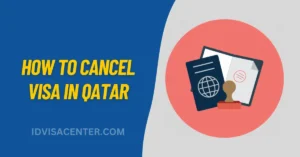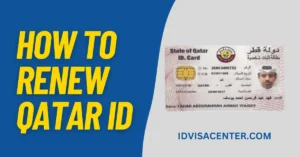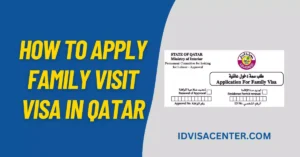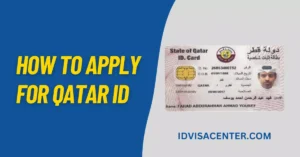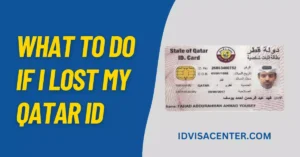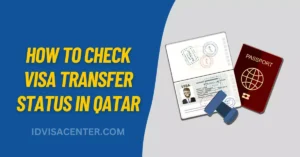How to Get Freelance Visa in Qatar? Steps to Apply
Qatar, the rising star of the Arab world, attracts talent and ambition from across the globe. Yet its complex visa system can deter digital nomads and location-independent workers. Qatar still largely relies on sponsored employment visas that require a local entity to act as your sponsor, usually an employer. It presents hurdles for freelancers and remote professionals seeking flexibility.
In response, some turn to the confusing “freelance visa” which allows you to work solo without a single sponsor. However navigating this visa requires careful attention to Qatar’s stringent policies. Eligibility is limited, documents must be in order, and fees apply. Severe penalties await those who do not comply.
Our comprehensive guide will explain who qualifies for Qatar freelance visas, what costs to expect, and how to avoid legal issues.
What is Freelance Visa in Qatar?
A phrase such as “freelance visa” (free or azad visa) has become a common term in Qatar to describe a certain type of employment visa. But what exactly are these freelance visas, how do they work, and what is their legal status?
A freelance visa is a regular work visa obtained through an unofficial sponsorship agreement between the visa holder and the sponsor. The key difference compared to a standard employment visa is that the sponsor does not hire, employ, or pay any salary to the visa holder.
Instead, the sponsor provides the visa, allowing the holder to reside in Qatar legally. But there is no real job or contractual relationship behind this visa. The holder pays the sponsor fees to obtain and renew the visa while being flexible to take on freelance work.
Who is Eligible for Qatar Freelance Visa?
To qualify for a freelance visa in Qatar, you must meet specific criteria:
- Professionals: You should possess a professional skill set, such as web development, graphic design, or consulting.
- Experience: Typically, you should have a minimum of two years of relevant experience in your field.
- Sponsorship: Freelancers in Qatar often require a local sponsor or a Qatar-based company to vouch for their work.
Steps to Get Freelance Visa in Qatar
There is no regulated process for obtaining a freelance visa in Qatar. For those who want to take this route, here are the steps:
Step 1: Finding a Visa Sponsor
Searching for a visa sponsor must be done discreetly through personal contacts and networks, as no official channel exists. Before engaging a sponsor, thoroughly vet them and seek recommendations from trusted sources.
Step 2: Documentation
Prepare the necessary documents, including:
- Passport copies
- Educational certificates
- Experience certificates
- Criminal record clearance
- Business plan
Step 3: Negotiating Fees
Sponsors typically charge 5,000-10,000 QAR upfront and monthly fees of 250-500 QAR. Be very wary of exploitative rates and hidden costs. Try to negotiate transparency and accountability around the payments before agreeing to fees.
Step 4: Signing Visa Paperwork
The paperwork is fake- it claims the sponsor will employ you, despite the fact they will not do so. Due to this, the visa is illegal under Qatar’s labor laws. Nevertheless, you must sign the documents to continue the process.
Step 5: Paying Visa Fees
You must pay all upfront and ongoing fees to the sponsor on time. The fees are non-refundable, so you forfeit the money if anything goes wrong.
Step 6: Medical Examination
Undergo a medical examination at a government-approved healthcare center.
Step 7: Biometric Data
Provide your biometric data at the Immigration Department.
Step 5: Receiving the Visa
When the sponsor receives your payments, they apply for a residency visa on your behalf and give you the physical visa.
Step 6: Renewing the Visa
To maintain the visa validity, you must keep paying renewal fees to your sponsor every 2-3 years—failure to renew results in cancellation and exit from Qatar.
After applying for a freelance visa you can check your Qatar Visa Status online.
Benefits of Freelance Visa
Freelance visas occupy a complex space in Qatar’s labor ecosystem. Examining the benefits from different perspectives provides critical insight.
Break Sponsorship Rules
For expatriate workers in Qatar, freelance visas provide an escape from the restrictions of the kafala sponsorship system. Under kafala rules, expats need a sponsor by an employer who controls their legal status and exit permissions.
Freedom to Work Independently
A major appeal of freelance visas is the freedom they give expatriates to work independently. Rather than being limited to employment by the sponsoring company, the visa holder can take on short-term contracts, freelance projects, and part-time work across various companies in Qatar. The result is more career options beyond relying on a sole employer.
Income for local sponsors
The primary motive for local Qataris and companies who sponsor the visas is clear financial gain. Providing freelance visas generates substantial extra income for sponsors without any actual hiring costs or liabilities. They collect large visa fees while avoiding formal employment duties. A lucrative revenue stream, this can be a great source of income.
Filling a Market Demand
Ultimately, the ecosystem around freelance visas persists because it serves a clear labor market demand. Expat workers desire these visas flexibility and freedom, while sponsors profit from catering to that need. This symbiotic demand dynamic sustains the system despite its legal gray areas.
Hidden Costs of Freelance Visas in Qatar
In many cases, freelance visas come at a high price and with unclear conditions that exploit vulnerable migrant workers.
Upfront Visa Fees
Workers may pay anywhere from QR 5,000 to QR 10,000 upfront to obtain a freelance visa from a sponsoring company in Qatar. These large lump sums pay for the initial visa issuance and renewal without formal employment. The high upfront cost burdens the visa holder.
Ongoing Monthly Payments
On top of large upfront visa fees, sponsors often charge monthly fees of QR 250 to QR 500 for workers to maintain the validity of their freelance visas. In addition, thousands of additional Qatari Riyals are paid regularly for residency rights without a proper job contract. The ongoing costs are excessive.
Targeting of South Asian Migrants
Those most vulnerable to exploitation through the high hidden costs of freelance visas are often lower-income South Asian migrant workers like Indians, Pakistanis, Bangladeshis, and Sri Lankans. Language barriers and lack of local knowledge facilitate the murky fees and misinformation around freelance visas targeted at them.
Problems of Freelance Visa Holders
Despite their flexibility, freelance visas carry steep risks that make holders vulnerable on several fronts.
Labor Rights Not Protected
Freelance visa holders need formal employment contracts with set terms, conditions, or salaries with their sponsoring company. Therefore, they enjoy zero protections or benefits guaranteed by Qatari labor law. There is no contract oversight, limits on work hours, insurance coverage, or assurance of workplace safety or health benefits.
Predatory Employer Practices
Sponsors can charge astronomical fees to provide freelance visas, essentially selling the visas with no accountability. Freelance holders lack any leverage against sponsors engaging in predatory practices. Additionally, employers can exploit freelancers who may underpay, overwork, or refuse to pay for services rendered.
Constant Legal Threat
Qatar’s strict penalties against illegal workers leave freelance visa holders under perpetual threat. Those caught working outside their sponsor face detention, deportation, fines and blacklisting by the authorities. Random raids targeting illegal workers add to the prevailing climate of fear.
No Long-Term Stability
As Qatar strengthens its labor regulations, it may eliminate freelance visas anytime. Visa holders live in constant uncertainty, unaware if policies that impact their status are about to tighten. Years spent building freelance livelihoods in Qatar could be wiped overnight without warning if rules change.
The Freelance Life in Qatar
Setting Up Your Business
Upon obtaining your freelance visa, you can legally establish your business in Qatar. This process involves registering your business, obtaining the necessary permits, and opening a local bank account.
Networking Opportunities
Qatar offers numerous networking events and business expos where freelancers can connect with potential clients and collaborators.
Taxation
Understanding the tax regulations in Qatar is essential for freelancers. Typically, freelancers are subject to a low tax rate, but it’s advisable to consult a tax expert.
FAQs
Is it legal to work in Qatar on a freelance visa?
No, freelance visas are illegal under Qatar’s labor and immigration laws, as the sponsor does not truly employ the visa holder as stated in the visa agreement. However, some companies still provide freelance visas through unofficial channels for a substantial fee.
What are the requirements to get a freelance visa in Qatar?
There are no official requirements or processes to obtain a freelance visa, as they exist in a legal gray area. Typically, you must pay a sponsoring company a large upfront fee ranging from 5,000-10,000 QAR. The company uses this payment to justify sponsoring your residence visa without hiring or paying you.
How long does it take to obtain a freelance visa in Qatar?
The processing time varies but can take several weeks to a few months, depending on individual circumstances.
Do I need to have a physical presence in Qatar as a freelancer?
While it’s not mandatory to have a physical office in Qatar, you should be prepared to visit the country for visa processing and other legal requirements.
Which companies sponsor freelance visas?
There is no formal system, so you must find a sponsor through word-of-mouth and informal networks. Be cautious of scams. Seek recommendations and vet any sponsor thoroughly upfront. Official sponsors of freelance visas operate discreetly due to their illegal nature.
Are there any restrictions on the types of freelance work I can do in Qatar?
Certain professions, such as medicine and law, have specific licensing requirements. Ensure you meet all regulatory criteria for your field.
Conclusion
Securing a freelance visa in Qatar opens the door to a world of opportunities in this thriving nation. With the right qualifications, documentation, and a local sponsor, you can embark on a successful freelance journey in Qatar, leveraging its booming economy and welcoming atmosphere.
The world of freelance visas in Qatar exists in a legal gray zone, offering great flexibility but at substantial risk. Understanding the potential rewards and dangers is essential for those seeking work opportunities in Qatar outside the strictures of employer sponsorship.
To avoid pitfalls, expats should exercise caution, seek reliable advice, and explore safer legal options before venturing into the precarious world of freelancing in Qatar.

